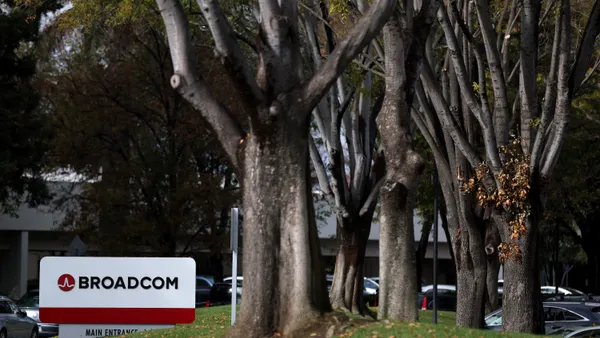Consumers have flooded grocery stores and their online portals in recent days in an abundance of caution due to a potential quarantine amid the pandemic.
Online grocery Peapod experienced hours-long service outages last week, according to updates via Twitter. Frustrated customers voiced their concerns, "This is becoming a joke," one user wrote. "How is your IT team still okay with this happening multiple times recently?"
Companies staring down reliability issues likely didn't perform routine testing. If companies suddenly need to ramp up reliability, they already have an issue, Jason Yee, director of advocacy at Gremlin, told CIO Dive.
Preparation and "fire drills" are key ingredients to resilience, especially as companies experience higher traffic levels due to the novel coronavirus pandemic, more people working remotely and social distancing, said Yee.
Running weekly drills to ensure uptime, reliability and bandwidth, helps decrease the need for foresight. "You've already done your homework and tested how your systems respond to failure," he said.
Cloud computing — which offers the ability to quickly scale capacity — is a company's best bet for sudden traffic increases. Cloud-native companies, such as Amazon, are preconditioned to adjust to higher demand times, Frank Kenney, director of sales enablement at Cleo, told CIO Dive.
"In cases where infrastructure needs to be heavily controlled and maintained, the choice is to build data centers that conform to all the tenants of cloud; elasticity being the big one," said Kenney. Big cloud vendors "built data centers the right way."
But cloud vendors play a minimal role in uptime. As long as the vendor's operations are running, customers are responsible for gauging correct configurations and capacity for scaling services.
Newer and cloud-native companies often have the misconception that the "cloud will solve all of their problems ... they still need to understand supply chain processes and who their alternative suppliers are in the case of an event like coronavirus," said Kenney.
Compared to the first week of March last year, Peapod experienced a 33% increase in Stop & Shop orders, reports CIO Dive's sister publication Grocery Dive. Online grocers and retailers are telling customers to expect delays in delivery.
Retailers are facing immense pressure to be stable and online as brick and mortar locations close for the foreseeable future. But "this isn't a problem unique to any one company — everyone is struggling with the complexity of cloud and distributed systems," said Yee.
The cloud can use predictive algorithms and modeling to readjust the supply chain. However, almost three-quarters of retailers struggle with predictive forecasting, reports Supply Chain Dive. Historical data is used for predictive analytics in the cloud, however, an unprecedented pandemic is challenging its reliability.
The indicators of a demand surge in relation to coronavirus were there, according to Kenney. "While people are often unpredictable, and the shortage of toilet paper couldn't have been seen coming, the shortages of hand sanitizer and sanitary products were completely predictable."














